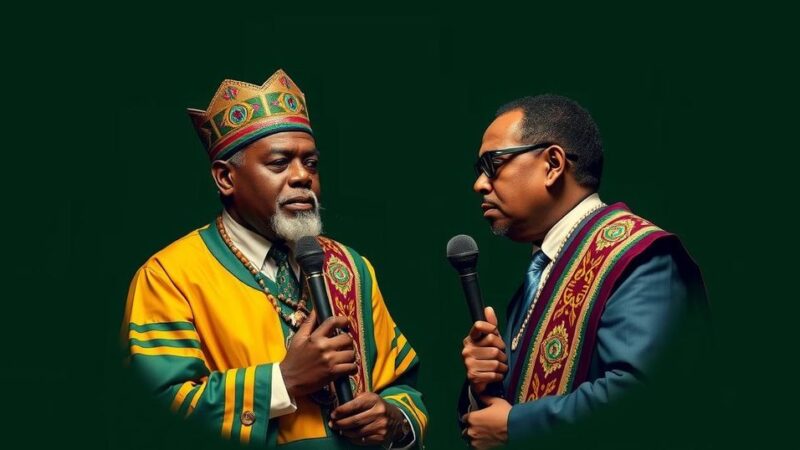Tunisian President Kais Saied is expected to win the upcoming election with little meaningful opposition, as many challengers are imprisoned or disqualified. This reflects a broader trend of autocracy and disillusionment with democracy in a country that once showcased promise during the Arab Spring.
As Tunisia approaches its presidential election on Sunday, many citizens regard the event as devoid of significance. President Kais Saied’s overwhelming confidence in his victory is evident, as he has refrained from articulating any policy initiatives and has opted for a campaign devoid of traditional elements such as candidate posters and public debates. His principal opponent remains imprisoned, having been sentenced to a total of 12 years on charges deemed by his legal representation as fabricated. Furthermore, at least eight additional potential candidates face imprisonment or house arrest, while others have been barred from participating in the electoral process altogether. In the aftermath of the uprisings that ousted the long-standing dictator Zine El-Abidine Ben Ali, many Tunisians express skepticism regarding the existence of democracy within their nation. The recent patterns of repression against dissenting voices and President Saied’s consolidation of power have fostered a sense of inevitability regarding the endurance of his autocratic governance. Souhaib Fercheche, a senior campaigner at I Watch, a civic monitoring organization established by youthful activists post-revolution, remarked, “He’s willing to do anything it takes to stay in power — dividing Tunisians, prosecuting them, accusing them.” Despite the initial hope surrounding the 2011 revolution, which was perceived as a beacon of democratic progress in the Arab Spring, many Tunisians feel disenfranchised, disillusioned by unmet expectations for political reform and socioeconomic improvement.
The article addresses the current political climate in Tunisia, particularly focusing on the lead-up to the presidential election scheduled for Sunday. It highlights President Kais Saied’s dominance in the political sphere, characterized by the elimination of meaningful opposition, including the imprisonment of key challengers and the disqualification of numerous candidates. The context reflects a retreat from democratic principles and echoes sentiments of disappointment among the populace who once aspired for an effective democracy following the Arab Spring, which initially ignited hopes for reform and progress in the region.
In summary, Tunisia’s political landscape is overshadowed by President Kais Saied’s authoritarian rule as he approaches what appears to be a predetermined election victory. With his primary opponent incarcerated and many others suppressed or excluded from the democratic process, the electoral proceedings reflect a significant departure from the promises of the 2011 revolution. The pervasive sentiment among the Tunisian populace is one of disillusionment, as aspirations for genuine democratic governance remain unfulfilled.
Original Source: www.nytimes.com






